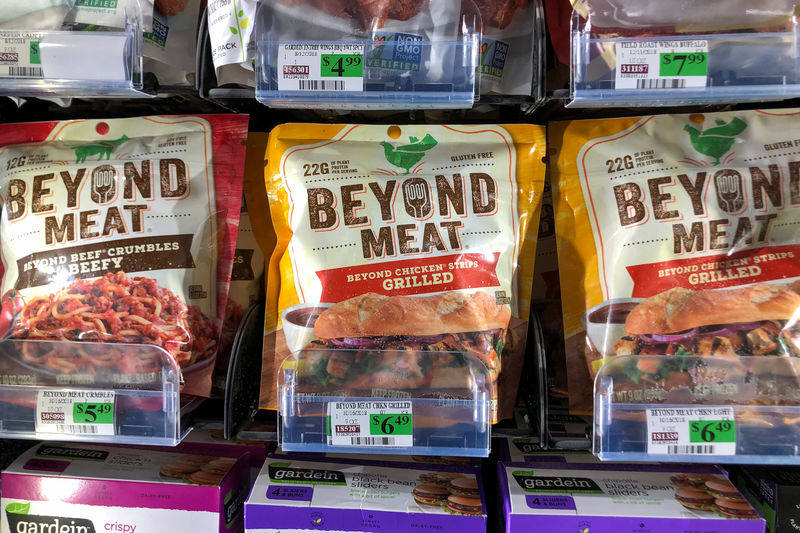By Liz Moyer
Investing.com -- Wall Street has taken a pessimistic stance on plant-alternative foods lately, despite rising food inflation and a broad movement by consumers to adopt more sustainable consumption.
That could be because plant-based foods aren’t necessarily less expensive than other proteins.
As of October, the price of a pound of ground beef was $4.84, according to the Agriculture Department. The cost of a whole chicken was $1.86 a pound, while boneless chicken breast went for $4.67 a pound. Ham was listed as going for $4.43 a pound.
By comparison, a two-pound box of Beyond Meat Inc (NASDAQ:BYND) burger patties is selling for $14.80 on Walmart Inc's (NYSE:WMT) website, or $7.40 a pound, while a one-pound package of ground beef is selling for $4.58.
A 10-ounce package of Beyond Meat chicken nuggets is selling for $4.98 on Walmart.com, (or around $7.91 a pound), while a two-pound bag of frozen Tyson Foods Inc (NYSE:TSN) chicken nuggets is selling for $6.98.
A whole Hormel Foods Corporation (NYSE:HRL) dinner ham was quoted at $34.35, or $4.58 a pound, on Walmart’s website.
Barclays cut its ratings on both Beyond Meat and Tyson this week, saying “the worst is yet to come” as consumers shift their purchasing habits in favor of less expensive proteins and other food.
It cut Beyond Meat to underweight from equal weight and moved its price target to $10 from $13. It cut Tyson shares to underweight from equal weight as well, lowering the price target to $58 from $89. Earlier this month, Goldman reiterated a sell rating on Beyond Meat, with a $5 price target.
Shares of Beyond Meat were up 12.9% on Wednesday but are down 77% for the year, while Tyson shares rose 0.5% and are down 24% this year. Shares of Hormel fell 2.5% on Wednesday and are down 3.7% this year.
Hormel reported earnings on Wednesday, beating profit expectations. But its outlook on net sales came in slightly lower than expected. Hormel forecast net sales for 2023 to be in a range of $12.6 billion to $12.9B, which would be higher than 2022 but below the analyst consensus forecast of $13.1B.
Higher pricing helped lift profits from its Jennie-O turkey stores. Higher levels of brand investment and increased production capacity have put it on a good path going into next year, the company said, adding it anticipates growth will come from foodservice and international business segments.
